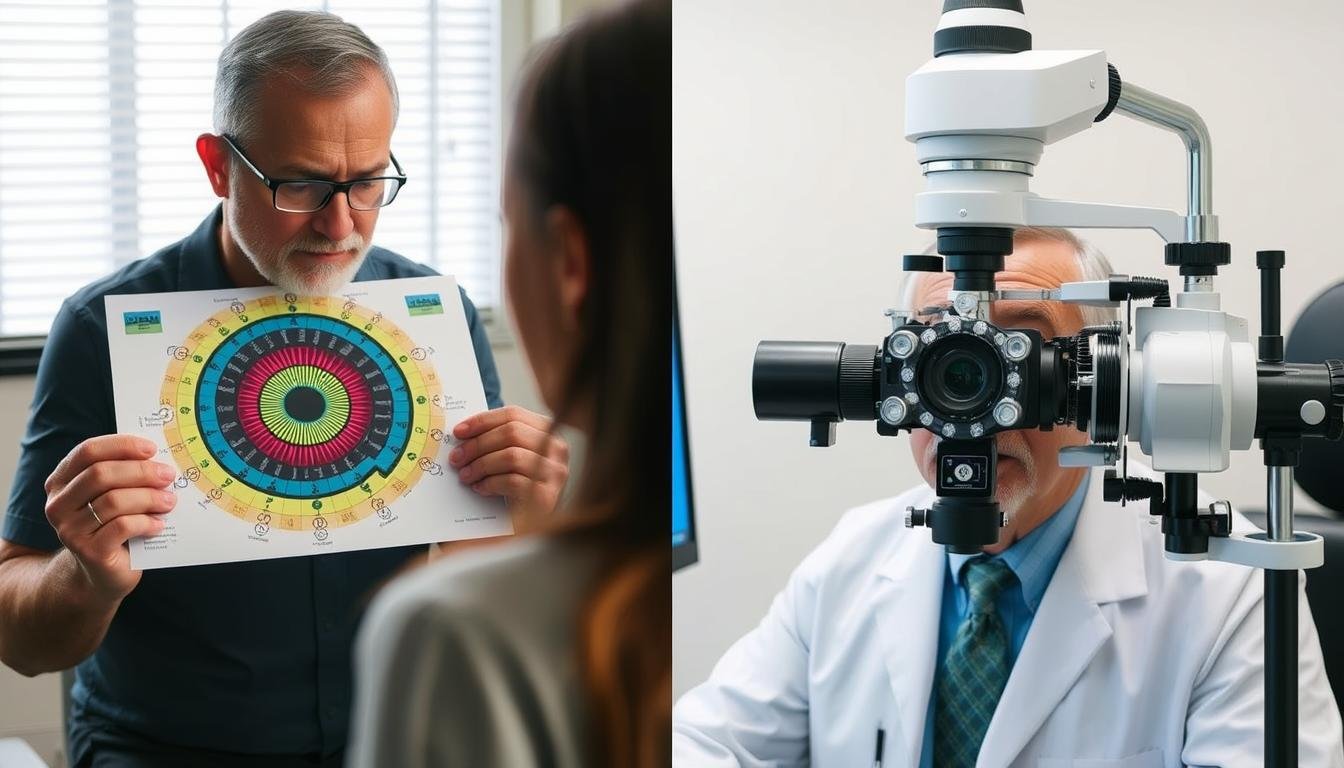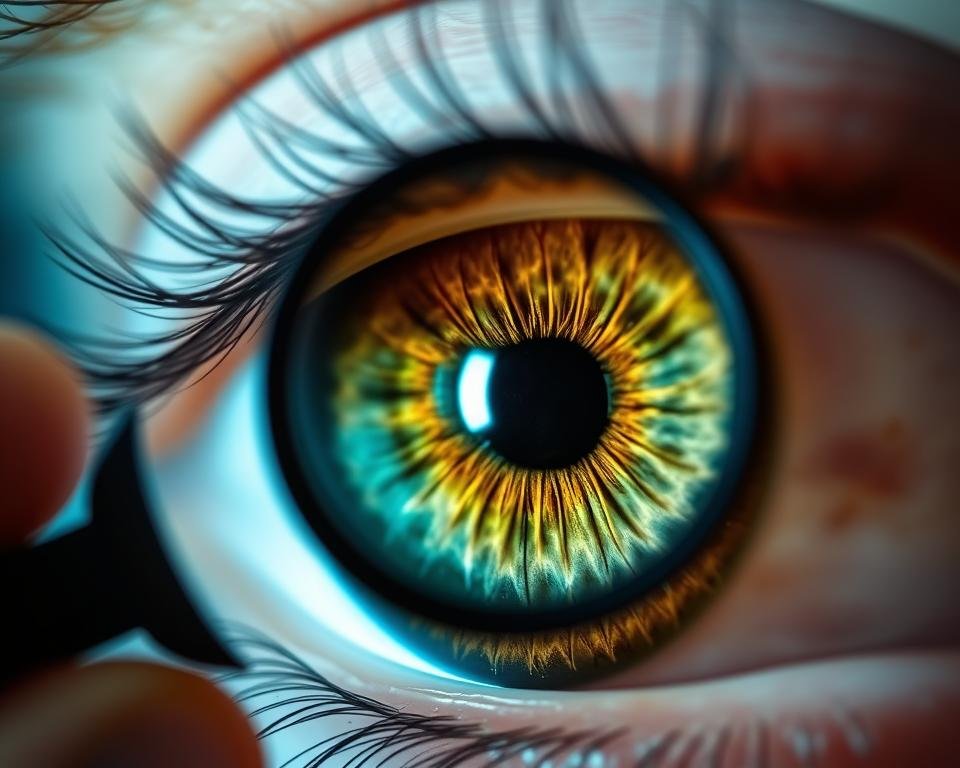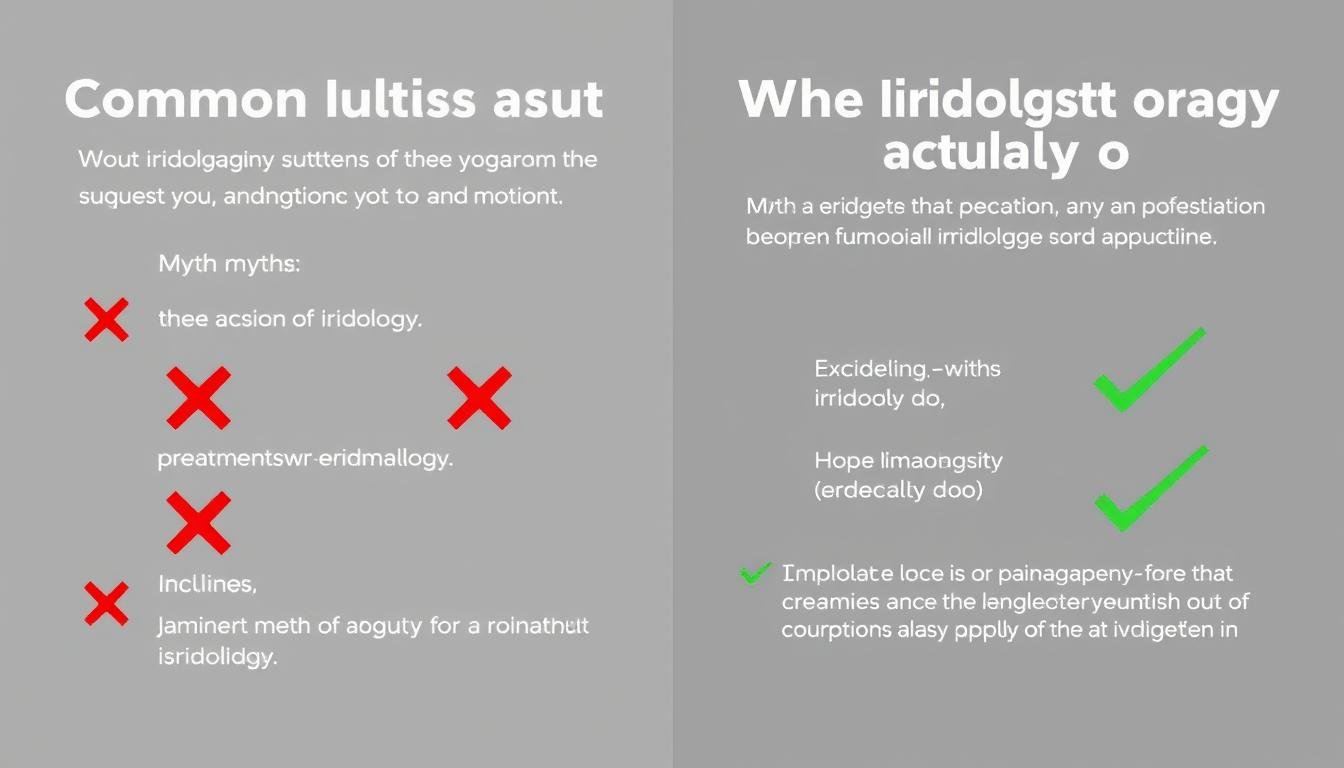When it comes to eye care and health assessment, you may encounter two distinct professionals: the iridologista and the optometrist. While both examine your eyes, their approaches, training, and medical recognition differ significantly. Understanding these differences is crucial for making informed decisions about your health and vision care. This comprehensive guide explores what each practitioner does, their qualifications, and when you might consider consulting either one.
What Does an Iridologist Do?
An iridologist is a practitioner who studies the patterns, colors, and other characteristics of the iris (the colored part of the eye). The fundamental belief in iridology is that the iris can reveal information about a person’s overall health status and potential health concerns.
Iridologists claim they can identify various health conditions by examining specific zones of the iris that supposedly correspond to different organs and systems in the body. Using detailed iris charts that map these connections, they look for abnormalities in pigmentation or structural features that might indicate health issues.
The Iridologist’s Approach to Assessment
During a typical session, an iridologist will:
- Examine your iris using specialized equipment like magnifying tools or cameras
- Compare observations to iridology charts that divide the iris into approximately 60 sections
- Identify patterns, discolorations, or markings believed to indicate health concerns
- Suggest potential health issues based on these observations
- Recommend lifestyle changes, supplements, or other interventions
Iridologists often claim they can detect signs of inflammation, nutritional deficiencies, toxin accumulation, and organ stress before physical symptoms appear. This is based on the theory that the iris reflects the condition of the body’s various systems.
Curious About What an Iridologist Might Find?
If you’re interested in exploring alternative health assessments, consulting with an iridologist might provide a different perspective on your health.
Encontre um iridologista perto de você
The Role of an Optometrist
An optometrist is a healthcare professional who provides primary vision care, ranging from sight testing and correction to the diagnosis, treatment, and management of vision changes and eye diseases. Unlike an iridologist, an optometrist is a licensed medical professional who has completed extensive education and clinical training.
What Happens During an Optometric Examination?
A comprehensive eye exam with an optometrist typically includes:
- Visual acuity testing to determine prescription needs
- Eye pressure measurement to screen for glaucoma
- Examination of the retina and optic nerve
- Assessment of how well eyes work together
- Diagnosis of eye diseases and conditions
- Prescription of corrective lenses or medications when needed
Optometrists can also detect signs of systemic health conditions like diabetes, hypertension, and autoimmune disorders through eye examinations. Their approach is based on established medical science and clinical evidence.
Proteja sua visão com cuidado profissional
Regular eye exams with an optometrist are essential for maintaining good vision and detecting potential health issues early.
Programe um exame oftalmológico hoje
Training for an Iridologist vs Optometrist
Iridologist Education
The training for an iridologist varies significantly as there is no standardized educational requirement or universally recognized accreditation. Typically, iridologists may:
- Complete certificate programs ranging from a few days to several months
- Study through correspondence courses or online programs
- Learn from established practitioners through apprenticeships
- Attend workshops and seminars on iridology techniques
Many iridologists have backgrounds in alternative medicine, naturopathy, or other holistic health practices. However, their training is not regulated by medical boards or government agencies in most countries.
Optometrist Education
Optometrists undergo rigorous, standardized education and licensing:
- Complete a 4-year Doctor of Optometry (O.D.) degree after undergraduate studies
- Study anatomy, physiology, optics, pharmacology, and vision science
- Complete supervised clinical rotations in various practice settings
- Pass national board examinations
- Obtain state licensing to practice
- Complete continuing education to maintain licensure
Many optometrists also complete residency programs for specialized training in areas like pediatric optometry, vision therapy, or ocular disease management.
The fundamental difference in training reflects the contrast between evidence-based medical education and alternative health approaches that lack standardized curriculum or clinical requirements.
Diagnostic Methods: Iris Analysis vs. Eye Exams
Iridologist Diagnostic Methods
- Examines iris patterns, colors, and markings
- Uses iridology charts mapping iris zones to body systems
- Often employs specialized cameras to photograph the iris
- Looks for changes in iris structure and pigmentation
- Non-invasive observation without medical instruments
- Claims to detect potential health issues before symptoms appear
Optometrist Diagnostic Methods
- Uses scientifically validated diagnostic equipment
- Performs comprehensive vision and eye health testing
- Measures visual acuity, eye pressure, and eye movement
- Examines internal and external eye structures
- Can prescribe corrective lenses and medications
- Diagnoses eye diseases based on clinical evidence
Scientific Evidence Behind Each Approach
The scientific community has extensively studied both approaches with significantly different conclusions:
| Aspecto | Iridologist Approach | Optometrist Approach |
| Research Support | Limited scientific validation; most studies do not support diagnostic claims | Extensive peer-reviewed research supporting diagnostic methods |
| Diagnostic Accuracy | Studies show poor correlation between iris signs and confirmed health conditions | High diagnostic accuracy for eye conditions with established clinical protocols |
| Aplicação Clínica | Not recognized in conventional medical practice | Integrated into healthcare systems worldwide |
| Treatment Outcomes | Few controlled studies measuring efficacy of treatments based on iridology | Treatments based on established clinical guidelines with measured outcomes |
Medical Recognition and Regulation
Iridologist Recognition
The status of iridologists in the medical community and regulatory landscape:
- Not recognized as medical practitioners in most countries
- No government licensing or regulation in the United States and most Western nations
- Cannot legally diagnose medical conditions in most jurisdictions
- Not covered by conventional health insurance
- May be recognized within complementary and alternative medicine communities
Optometrist Recognition
Optometrists enjoy widespread recognition and regulation:
- Licensed healthcare providers in all 50 U.S. states and most countries
- Regulated by state boards of optometry
- Services covered by health insurance and vision plans
- Recognized as primary eye care providers
- Can diagnose and treat eye diseases within their scope of practice
- Can prescribe medications in most jurisdictions

Nota importante: While an iridologist may provide insights from an alternative health perspective, they cannot legally diagnose medical conditions or prescribe treatments for eye diseases in most countries. Always consult with licensed healthcare providers for medical diagnoses and treatment.
When to Consult Each Professional
Reasons People Consult an Iridologist
- Interest in holistic or alternative health approaches
- Seeking additional perspectives on overall health
- Curious about potential health issues not yet symptomatic
- Looking for complementary approaches to conventional medicine
- Interested in preventative health strategies
Reasons to See an Optometrist
- Vision changes or difficulty seeing clearly
- Eye pain, redness, or discharge
- Regular vision and eye health check-ups
- Need for prescription eyeglasses or contact lenses
- Eye injuries or emergencies
- Management of eye diseases like glaucoma or cataracts
- Screening for diabetes-related eye changes
Make an Informed Decision About Your Eye Care
Whether you’re curious about what an iridologist might observe or need a comprehensive eye exam from an optometrist, understanding your options helps you make better health decisions.
Learn More About Eye Care Options
Common Misconceptions About Iridologists

Misconception: Iridologists can diagnose specific diseases
Reality: While iridologists may identify patterns they associate with certain health conditions, they cannot legally diagnose specific diseases in most countries. Iridology is considered an assessment tool rather than a diagnostic method in the conventional medical sense.
Misconception: Iridologists are the same as ophthalmologists
Reality: Iridologists are not medical doctors and should not be confused with ophthalmologists, who are medical doctors specializing in eye and vision care. The training, approach, and medical recognition differ significantly.
Misconception: Iridology is a new alternative health practice
Reality: Iridology has historical roots dating back to the 17th century, with modern practices largely influenced by Dr. Ignaz von Peczely’s work in the 19th century. It’s not a new approach but rather one that has evolved outside mainstream medicine.
Misconception: Iridologists can replace regular medical care
Reality: Consulting an iridologist should be considered complementary to, not a replacement for, conventional medical care. Even practitioners of iridology typically recommend following up with appropriate medical professionals for any health concerns identified.
Why Understanding the Distinction Matters
Knowing the difference between an iridologist and an optometrist is crucial for making informed healthcare decisions. Here’s why this distinction matters:
- Health Outcomes: Relying solely on iridology for eye health could mean missing treatable conditions that an optometrist would identify and address.
- Financial Considerations: Insurance typically covers optometry services but not iridology consultations.
- Complementary Approaches: Understanding both can help you decide how to integrate conventional and alternative health practices.
- Informed Consent: Knowing what each practitioner can and cannot do helps set appropriate expectations for care.
- Safety: Being aware of the limitations of each approach helps protect your health and vision.
The key is not to view these as competing approaches but to understand their different roles in the spectrum of health care options available to you.
Perguntas frequentes
Can an iridologist prescribe glasses?
No, iridologists cannot prescribe corrective eyewear. Only licensed eye care professionals such as optometrists and ophthalmologists can prescribe glasses or contact lenses after conducting proper vision testing.
Existe alguma evidência científica que apoie a iridologia?
Most scientific studies have not found strong evidence supporting iridology’s diagnostic claims. Several controlled studies have shown that iridologists cannot consistently identify people with specific diseases by examining their irises.
Can I see both an iridologist and an optometrist?
Yes, many people do consult both practitioners. However, it’s important to maintain regular check-ups with licensed eye care professionals for your vision and eye health needs, regardless of whether you also consult an iridologist.
How much does an iridologist consultation typically cost?
Iridologist consultation fees vary widely, typically ranging from to 0 per session. Unlike optometry services, these consultations are generally not covered by health insurance.
How often should I see an optometrist?
Most eye care professionals recommend comprehensive eye exams every 1-2 years, depending on your age, risk factors, and whether you wear corrective lenses. Those with existing eye conditions may need more frequent visits.
Making Informed Choices About Eye Care
The choice between consulting an iridologist or an optometrist ultimately depends on your personal health philosophy, specific needs, and goals. While iridologists offer an alternative perspective on health through iris analysis, optometrists provide evidence-based eye care with proven diagnostic and treatment capabilities.
For comprehensive eye health, consider the following approach:
- Maintain regular appointments with licensed eye care professionals
- Consider complementary approaches like iridology as additional information, not as replacements for medical care
- Discuss all health practices with your primary care provider
- Research the qualifications of any practitioner you consult
- Make decisions based on both scientific evidence and personal values
By understanding the distinct roles, limitations, and strengths of both iridologists and optometrists, you can make more informed decisions about your eye health and overall wellbeing.
Dê o próximo passo em sua jornada pela saúde ocular
Whether you’re interested in exploring what an iridologist might observe or need a comprehensive eye examination, taking action for your eye health is important.
Find Eye Care Professionals Near You











